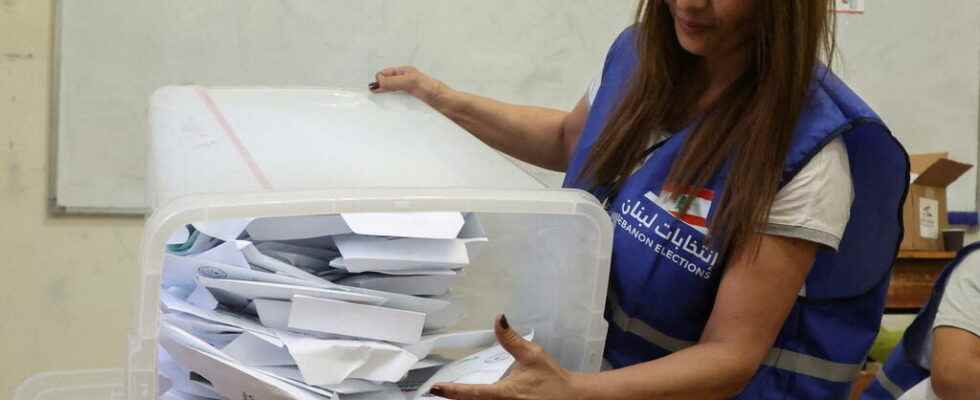The Lebanese were called on Sunday, May 15, to elect 128 deputies during the first legislative elections organized since the start of the crisis in 2019. The official results, announced by the Minister of the Interior, show that Hezbollah and its allies from other communities lost the parliamentary majority.
With our correspondent in Beirut, Paul Khalifeh
Hezbollah and its allies won 59 seats, far from the 65 seats needed to secure a majority in parliament. The rest of the chamber is made up of five separate blocs, which must agree on a common platform to form a majority. This is not a foregone conclusion given the refusal of elected representatives from the protests, who won 13 seats, to cooperate with the traditional parties.
The Lebanese Forces party won the most Christian seats with 19 elected. He stole this position from Hezbollah’s ally, the Free Patriotic Movement, which elected 17 candidates.
Nabih Berry probably renewed
The results of the elections will not prevent Hezbollah from electing its candidate for the presidency of Parliament. With its ally Amal, they won the 27 Shiite seats. However, in the Lebanese denominational system, the head of the legislature is always from the Shiite community. Nabih Berry, who has led the Chamber since 1992will probably be renewed, at the age of 84.
The fragmentation of the post-electoral landscape risks leading to institutional blockages. This will likely be seen when a new government is formed, at a time when Lebanon urgently needs an executive with ample room for maneuver to enact reforms and revive the economy.
► To read also: Legislative in Lebanon: the inhabitants between anger and hope
